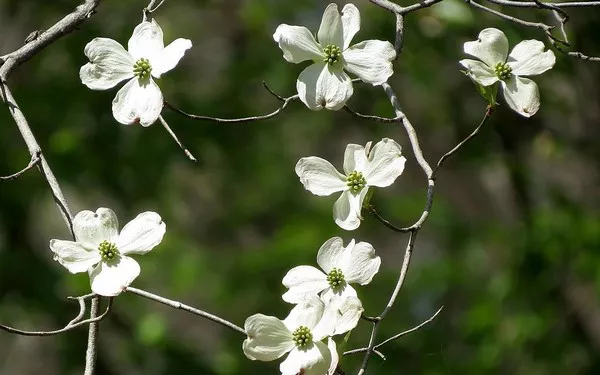Aphids, those tiny yet notorious pests, can wreak havoc on the health and beauty of your beloved flowers. These sap-sucking insects multiply quickly and can cause stunted growth, distorted leaves, and the spread of diseases. However, fear not – there are a variety of strategies to effectively manage and eliminate aphid infestations. In this article, we’ll delve into the world of aphids, exploring what kills aphids on flowers and prevention, natural remedies, and integrated pest management.
Understanding Aphids and Their Impact on Flowers
Aphids, also known as plant lice, are soft-bodied insects that come in various colors and sizes. They feed on the sap of plants, using their specialized mouthparts to pierce the plant’s vascular tissues. While aphids are a common garden pest, their ability to reproduce rapidly can lead to serious infestations, especially in warm and humid conditions. The damage caused by aphids goes beyond the visible signs – their feeding can weaken plants and make them more susceptible to diseases.
Identifying Aphid Infestations
Spotting aphid infestations early is crucial for effective control. Look out for the following signs:
1. Curling or Distorted Leaves
Aphids can cause leaves to curl, twist, or become distorted due to their feeding habits.
2. Sticky Honeydew
Aphids excrete a sugary substance called honeydew, which can attract ants and promote the growth of sooty mold on leaves.
3. Presence of Ants
Ants are known to “farm” aphids for their honeydew. If you notice ants crawling on your plants, it could be an indicator of aphid activity.
4. Stunted Growth
Plants infested with aphids often exhibit stunted growth and reduced overall vitality.
5. Wilting or Yellowing
Severe aphid infestations can lead to wilting, yellowing, and even death of plant tissues.
Effective Methods to Eliminate Aphids
When it comes to eradicating aphids from your flowers, a combination of methods often yields the best results. Here are some proven strategies:
1. Manual Removal
For small infestations, simply blast aphids off the plant with a strong stream of water from a hose. Be sure to target the undersides of leaves where aphids often cluster.
2. Pruning Infested Parts
Trimming and disposing of heavily infested plant parts can help contain the infestation and stimulate new, healthier growth.
3. Beneficial Insects
Introduce natural predators such as ladybugs, lacewings, and parasitic wasps to your garden. These insects feed on aphids and can help keep their populations in check.
4. Insecticidal Soap
Spraying insecticidal soap, which is specifically formulated to target soft-bodied insects like aphids, can be an effective solution. Ensure thorough coverage, especially on the undersides of leaves.
5. Neem Oil
Neem oil is a natural insecticide that disrupts aphids’ growth and development. It also acts as a repellent, deterring aphids from feeding on treated plants.
Preventing Aphid Infestations
Prevention is often the best approach when it comes to managing aphids. Implementing a few key practices can greatly reduce the likelihood of infestations:
1. Maintain Plant Health
Healthy plants are better equipped to resist and recover from aphid attacks. Ensure proper watering, fertilization, and overall plant care.
2. Companion Planting
Certain plants, such as marigolds, chrysanthemums, and garlic, are known to repel aphids. Incorporate these companion plants into your flower beds.
3. Regular Inspection
Frequent monitoring of your plants allows you to catch aphid infestations early and take action promptly.
4. Avoid Over-Fertilization
Excessive nitrogen fertilization can encourage lush, tender growth that is more susceptible to aphid infestations.
Natural Remedies for Aphid Control
Nature provides a range of remedies that can effectively deter and control aphids without resorting to harsh chemicals. Here are a few natural solutions:
1. Garlic Spray
Create a garlic-infused spray by blending garlic cloves with water and straining the mixture. Spray it on your plants to repel aphids.
2. Soap Spray
Mix a solution of mild liquid soap and water and spray it on affected plants. This suffocates aphids and disrupts their feeding.
3. Essential Oils
Essential oils like peppermint, rosemary, and thyme can be diluted with water and sprayed on plants to discourage aphids.
4. Reflective Mulch
Using reflective mulch, such as aluminum foil or reflective plastic, around plants can confuse and deter aphids.
Integrated Pest Management (IPM) for Aphids
Integrated Pest Management is a holistic approach that combines various strategies for sustainable pest control. Here’s how IPM can be applied to aphid management:
1. Identification
Accurately identify the pest and assess the extent of the infestation.
2. Monitoring
Regularly monitor plants for signs of aphids and their natural predators.
3. Prevention
Implement preventive measures such as proper plant care and companion planting.
4. Intervention
When necessary, use the least harmful method first – like manual removal or natural remedies – before resorting to chemical solutions.
5. Evaluation
Continuously evaluate the effectiveness of your chosen methods and adjust your approach as needed.
Conclusion
Aphids may be persistent, but armed with knowledge and a diverse toolkit of strategies, you can successfully combat these troublesome pests and protect your cherished flowers. Whether you opt for beneficial insects, natural remedies, or a combination of approaches, the key is consistent vigilance and prompt action. By understanding aphids’ habits, recognizing the signs of infestations, and employing preventative measures, you can maintain the health and vitality of your flowers while enjoying the beauty of a pest-free garden.


